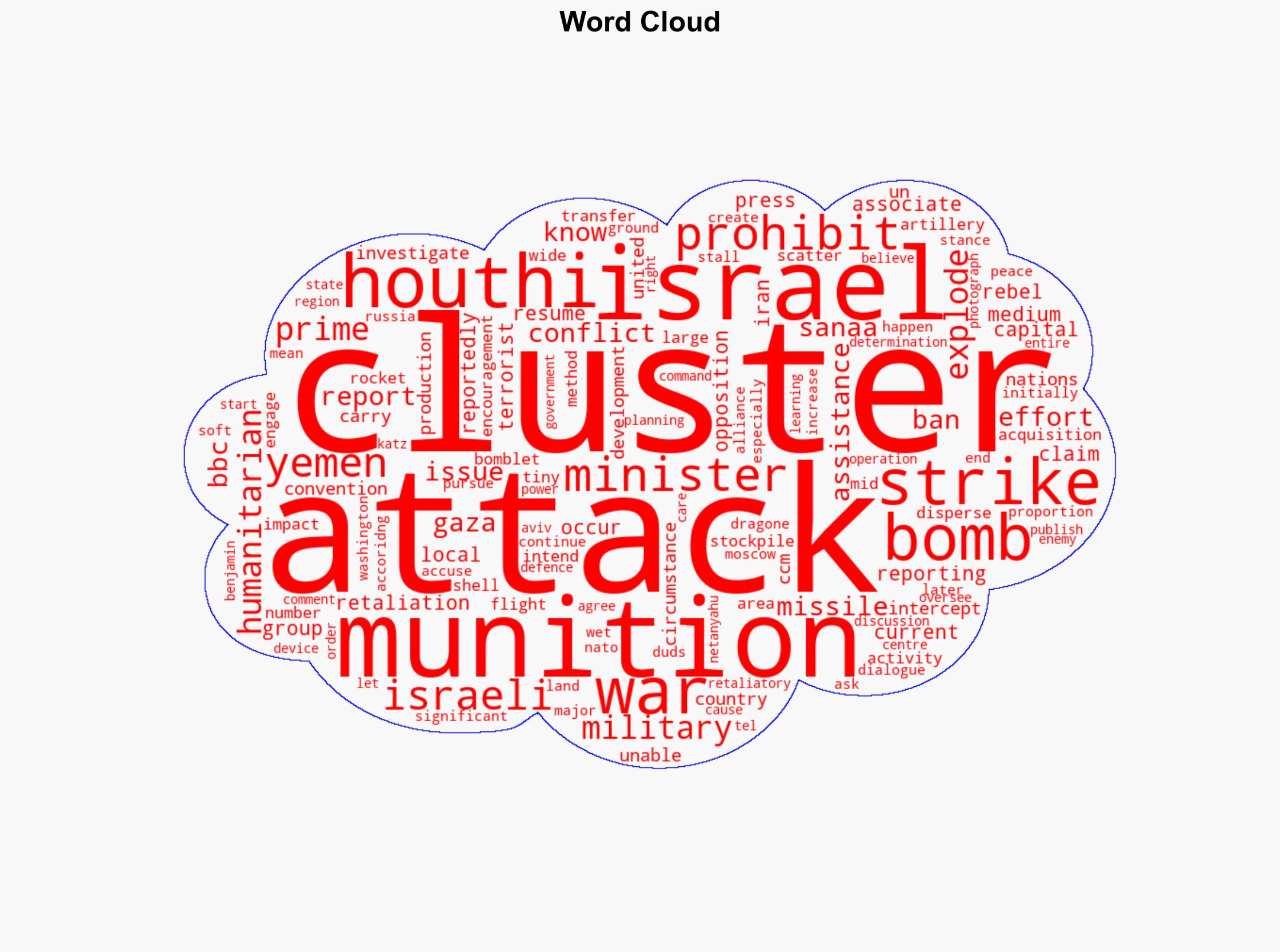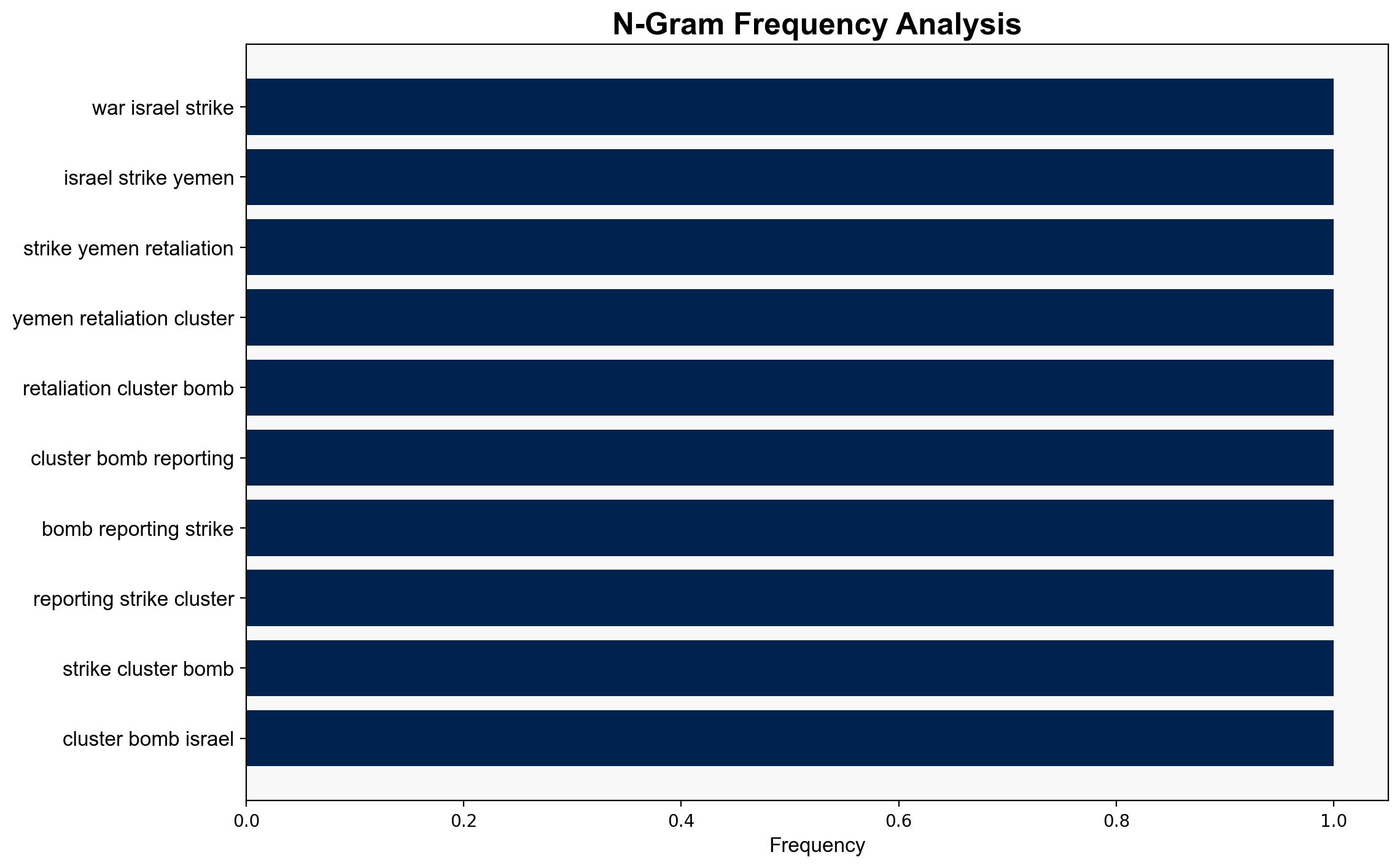WAR Israel Strikes Yemen As Retaliation For Cluster Bomb – Activistpost.com
Published on: 2025-09-10
Intelligence Report: WAR Israel Strikes Yemen As Retaliation For Cluster Bomb – Activistpost.com
1. BLUF (Bottom Line Up Front)
The most supported hypothesis is that Israel’s strike on Yemen is a strategic retaliation against the Houthi rebels, perceived as Iranian proxies, for their alleged use of cluster munitions against Israel. Confidence level: Moderate. Recommended action: Increase diplomatic engagement to de-escalate tensions and verify claims of cluster munition use through independent investigations.
2. Competing Hypotheses
1. **Hypothesis A**: Israel conducted strikes on Yemen as a direct retaliation for the Houthi rebels’ use of cluster munitions, which Israel perceives as a significant threat due to their humanitarian impact and potential Iranian involvement.
2. **Hypothesis B**: The strikes are part of a broader Israeli strategy to weaken Iranian influence in the region by targeting its proxies, using the cluster munition incident as a pretext.
Using the Analysis of Competing Hypotheses (ACH) 2.0, Hypothesis A is better supported by the reported direct linkage between the cluster bomb incident and the retaliatory strike, as well as the public statements by Israeli officials emphasizing the humanitarian threat.
3. Key Assumptions and Red Flags
– **Assumptions**:
– Israel’s intelligence accurately links the Houthis to the cluster bomb attack.
– The Houthis are acting as Iranian proxies in this incident.
– **Red Flags**:
– Lack of independent verification of the cluster bomb use.
– Potential bias in media reporting, given the geopolitical context.
– Absence of clear evidence linking the Houthis to the specific attack on Israel.
– **Blind Spots**:
– The possibility of other actors being involved in the cluster bomb incident.
– The internal political motivations within Israel influencing military decisions.
4. Implications and Strategic Risks
– **Geopolitical**: Escalation of conflict between Israel and Iranian-backed groups could destabilize the region further, drawing in additional state and non-state actors.
– **Economic**: Potential disruption of shipping lanes in the Red Sea, impacting global trade.
– **Psychological**: Increased fear and uncertainty among civilian populations in the region, potentially leading to humanitarian crises.
– **Cyber**: Heightened risk of cyber attacks as part of asymmetric warfare tactics by involved parties.
5. Recommendations and Outlook
- Engage in diplomatic efforts to mediate between Israel and Yemen to prevent further escalation.
- Initiate independent investigations into the use of cluster munitions to establish facts and accountability.
- Monitor regional military movements and prepare contingency plans for potential spillover effects.
- Scenario Projections:
– **Best**: Successful mediation leads to de-escalation and a ceasefire.
– **Worst**: Full-scale regional conflict involving multiple state actors.
– **Most Likely**: Continued tit-for-tat strikes with periodic diplomatic interventions.
6. Key Individuals and Entities
– Benjamin Netanyahu
– Israel Katz
– Houthi rebels
– Iranian government (implied involvement)
7. Thematic Tags
national security threats, regional focus, counter-terrorism, geopolitical tensions





